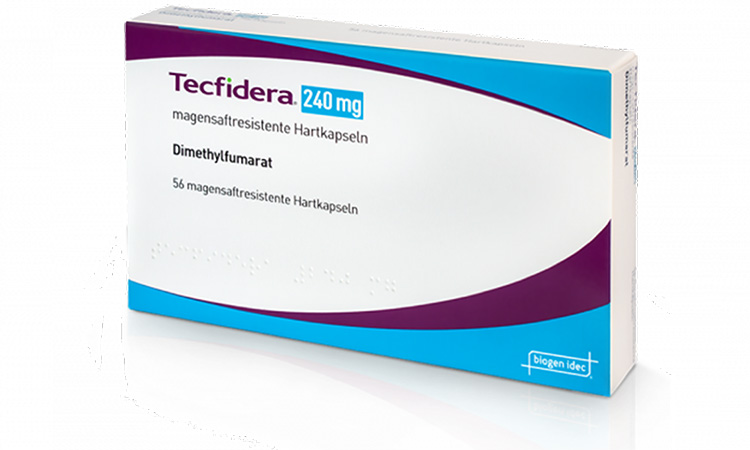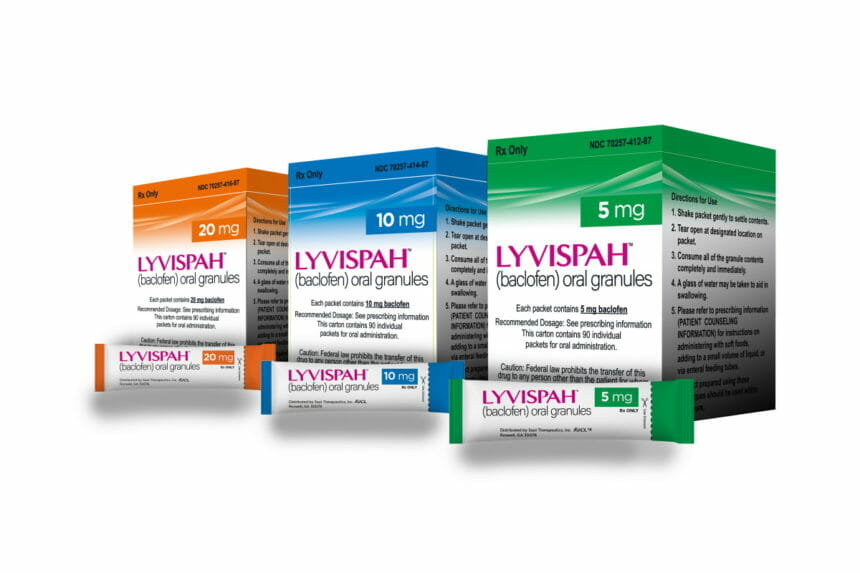Tecfidera (dimethyl fumarate) vs Lyvispah (baclofen)
Tecfidera (dimethyl fumarate) vs Lyvispah (baclofen)
Tecfidera (dimethyl fumarate) is an oral medication approved for the treatment of relapsing forms of multiple sclerosis (MS), working by modulating the immune response to protect against damage to the nervous system. Lyvispah (baclofen), on the other hand, is primarily used to treat spasticity (muscle stiffness) associated with conditions like MS, spinal cord injuries, or other neurological disorders, and it functions by inhibiting certain signals in the central nervous system that cause spasticity. When choosing between Tecfidera and Lyvispah, it is essential to consider the primary goal of treatment: Tecfidera is used to manage the disease course of MS, while Lyvispah is aimed at relieving specific symptoms such as muscle spasticity.
Difference between Tecfidera and Lyvispah
| Metric | Tecfidera (dimethyl fumarate) | Lyvispah (baclofen) |
|---|---|---|
| Generic name | Dimethyl fumarate | Baclofen |
| Indications | Multiple sclerosis | Spasticity |
| Mechanism of action | Activates the Nrf2 pathway | GABA-B receptor agonist |
| Brand names | Tecfidera | Lioresal, Gablofen, Lyvispah |
| Administrative route | Oral | Oral, Intrathecal |
| Side effects | Flushing, abdominal pain, diarrhea | Drowsiness, dizziness, weakness |
| Contraindications | Known hypersensitivity to dimethyl fumarate or its excipients | Kidney impairment, epilepsy, stroke |
| Drug class | Immunomodulatory agent | Muscle relaxant, antispastic agent |
| Manufacturer | Biogen | Various |
Efficacy
Tecfidera (Dimethyl Fumarate) for Multiple Sclerosis
Tecfidera (dimethyl fumarate) is an oral medication approved by the U.S. Food and Drug Administration (FDA) for the treatment of relapsing forms of multiple sclerosis (MS), which include clinically isolated syndrome, relapsing-remitting disease, and active secondary progressive disease. The efficacy of Tecfidera in treating MS has been demonstrated in clinical trials, such as the DEFINE and CONFIRM studies. These studies showed that Tecfidera significantly reduced the relapse rate and slowed the progression of disability in patients with relapsing forms of MS compared to placebo. Additionally, MRI findings from these trials indicated that Tecfidera reduced the number of new or enlarging brain lesions, which are a hallmark of MS activity.
Despite its effectiveness, the exact mechanism by which Tecfidera exerts its therapeutic effects in MS is not fully understood. It is believed to modulate the immune response and provide neuroprotective effects, which may help to reduce inflammation and prevent damage to the central nervous system. Patients taking Tecfidera may experience side effects, and it is important that they are monitored by healthcare professionals for any adverse reactions.
Lyvispah (Baclofen) for Multiple Sclerosis
Lyvispah (baclofen) is a medication that is commonly used off-label for the management of spasticity in patients with multiple sclerosis. Spasticity is a common symptom of MS, characterized by muscle stiffness and involuntary muscle spasms. Baclofen acts as a muscle relaxant by activating GABA-B receptors, which inhibits the excitation of muscle reflexes at the spinal level, leading to a reduction in muscle spasticity. While Lyvispah is not FDA-approved specifically for MS, its efficacy in managing spasticity associated with MS has been supported by clinical experience and various studies.
It is important to note that while Lyvispah can be effective in reducing spasticity in MS patients, it does not have a direct effect on the underlying disease process or the progression of MS. The use of baclofen for spasticity in MS should be individualized, and the dosage carefully titrated to optimize benefits while minimizing side effects. Patients should be monitored for potential adverse effects, such as weakness, drowsiness, or difficulty with coordination, which can impact their quality of life and ability to perform daily activities.
Regulatory Agency Approvals
Tecfidera
-
European Medical Agency (EMA), European Union

-
Food and Drug Administration (FDA), USA

-
Health Canada

-
Therapeutic Goods Administration (TGA), Australia

-
Medsafe (NZ)

Lyvispah
-
Food and Drug Administration (FDA), USA

Access Tecfidera or Lyvispah today
If Tecfidera or Lyvispah are not approved or available in your country (e.g. due to supply issues), you can access them via Everyone.org.
How it works

Make an enquiry
Choose the medicine you want to buy, answer a couple of questions, and upload your prescription to speed things up. We’ll get back to you within 24 hours.


Make an enquiry
Choose the medicine you want to buy, answer a couple of questions, and upload your prescription to speed things up. We’ll get back to you within 24 hours.


Breeze through the paperwork
We'll guide you through the required documents for importing unapproved medicine, ensuring you have all the necessary information.


Get a personalized quote
We’ll prepare a quote for you, including medicine costs and any shipping, administrative, or import fees that may apply.


Receive your medicine
Accept the quote and we’ll handle the rest - sourcing and safely delivering your medicine.

Some text on this page has been automatically generated. Speak to your physician before you start a new treatment or medication.
Let's talk
If you have any questions, call us or send us a message through WhatsApp or email:
Contact us




